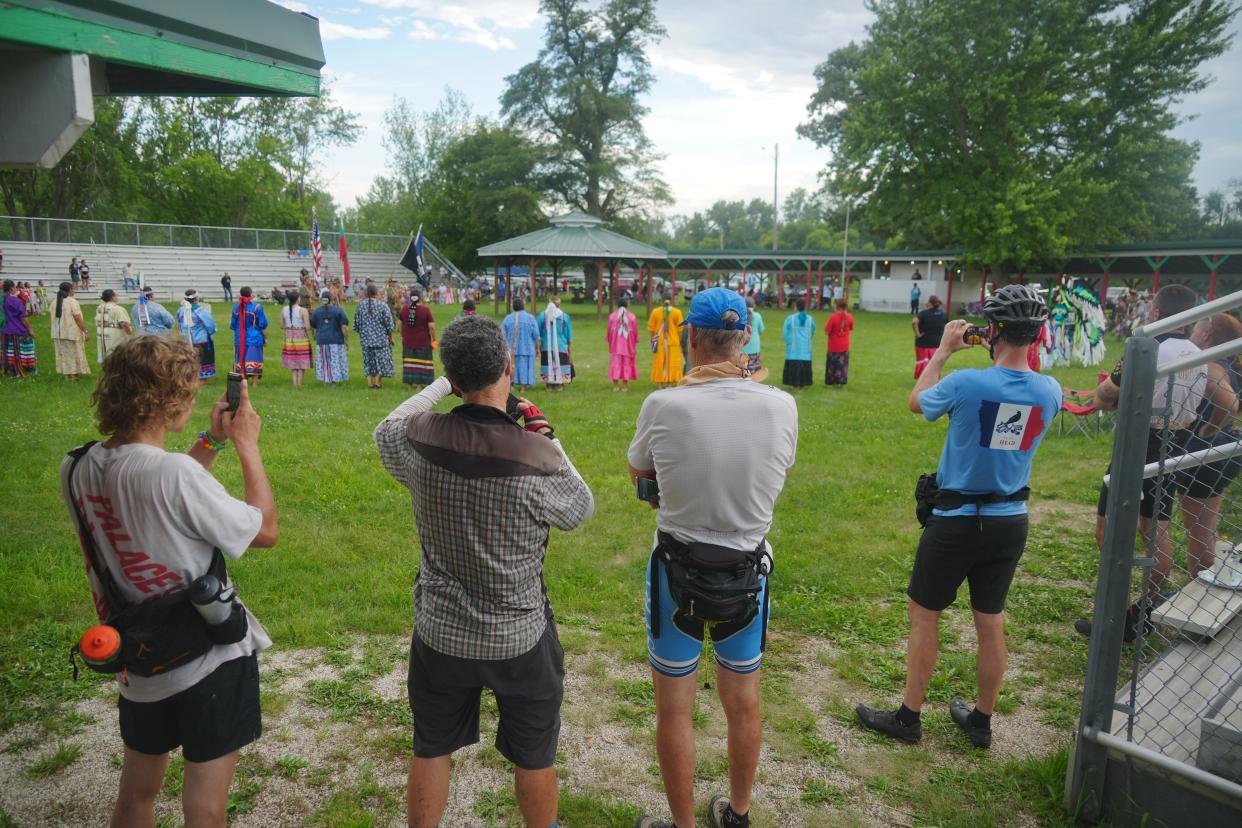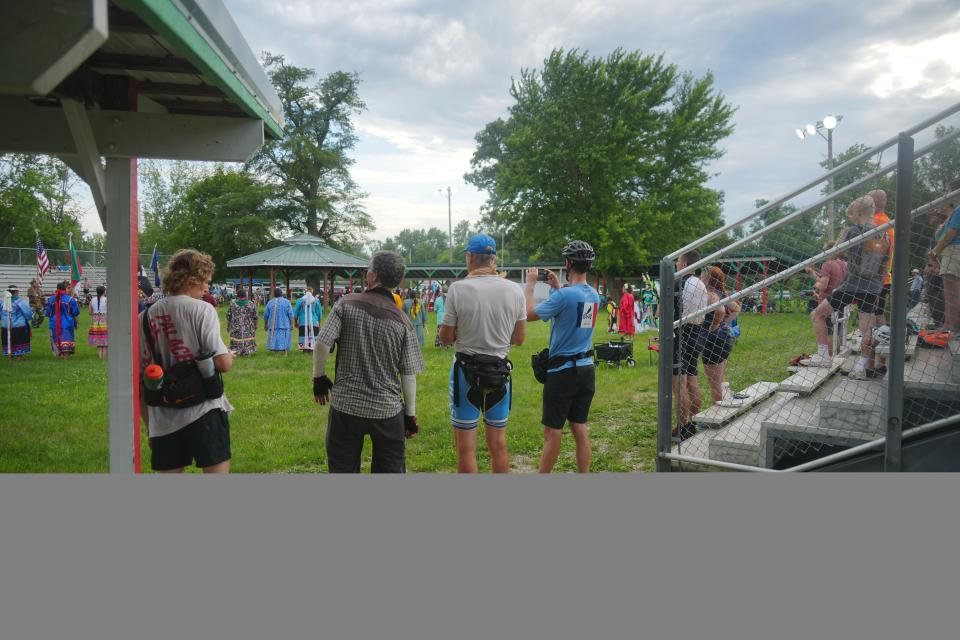RAGBRAI riders stop for the Meskwaki Settlement's powwow near Tama-Toledo

RAGBRAI riders on Day 5 the 50th anniversary ride received an unusual invitation to a celebration of a much older tradition.
Though hot and tired from the week's longest, hilliest ride, dozens made their way from the overnight town of Tama-Toledo to the nearby Meskwaki Powwow Grounds to join the Meskwaki Settlement of the Sac and Fox Tribe of the Mississippi in Iowa at the Meskwaki Nation Day Powwow.
The settlement is the legacy of members of an indigenous population determined to remain on the land that became Iowa despite the efforts to relocate them to a Kansas reservation. Some defied the edict and others filtered back to form the community that today numbers about 1,100 on 8,100 acres of Meskwaki-owned land in Tama, Marshall and Palo Alto counties.
More: What's it like to be an Iowa State Trooper on RAGBRAI? We spend a morning with one
Wearing colorful headdresses and regalia, community members on Thursday night danced to the beat of the drum to honor their military veterans and welcome the RAGBRAI riders, many of whom said they became curious after they heard music coming from the powwow grounds while rolling into Tama-Toledo.
Jonathan Carrillo of Chicago said the powwow resonated with him and reminded him of his Mexican roots.

"It's amazing. I love it, the community coming together and having a good time," Carrillo said. "I'm not directly related to them, but I feel like they're my distant relatives. I'm native to Mexico, they're native to here.
"I wanted to stop for sure and check it out," he said.
The Meskwaki Annual Powwow comes from the traditional religious and social beliefs of the Meskwaki Tribe, according to the tribe's website. A multi-day event, it evolved from the Green Corn Dance — an annual fall event that took place during the harvesting of crops — and other social gatherings of the tribal federation.
More: This 'fat cyclist' wants you to get on a bike as you are and take back your power
Typically, the powwow's special guests, the Head Man and Head Woman dancers and the nation's princess, follow the veterans into the arena, according to the website. The circle continues to grow with traditional men and women dancers and youth. When flags — including the U.S. and Meskwaki — are raised, the flag and honor songs are sung while those in the circle dance to the drums.
The songs, which evolved over time as different tribes gathered, are about war bravery, love and friendship, the website says.
Rider Annie Einheuser of Detroit said she'd been trying to stop along the way during the Register's Annual Great Bicycle Ride Across Iowa to enjoy unique experiences.
More: RAGBRAI's longest running vendor Chris Cakes still flips flapjacks after 49 years
"We don't see this in our community really at all," Einheuser said. "We're in the suburbs of metro Detroit, so I think any time that you can experience something outside of your own culture, it's good."
Liz Dunn of Chicago said that growing up in Iowa, she was aware of the Meskwaki but has learned more about native culture and issues more recently. Dunn, who observed the powwow with fellow rider Daniel Streicher, said it was an honor to be invited to the event.
Virginia Barreda is the Des Moines city government reporter for the Register. She can be reached at vbarreda@dmreg.com. Follow her on Twitter at @vbarreda2.
This article originally appeared on Des Moines Register: RAGBRAI riders accept invitation to the Meskwaki Settlement's powwow

